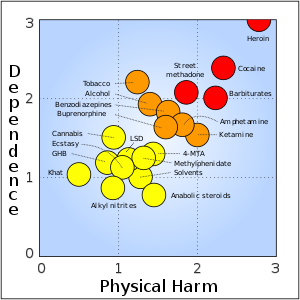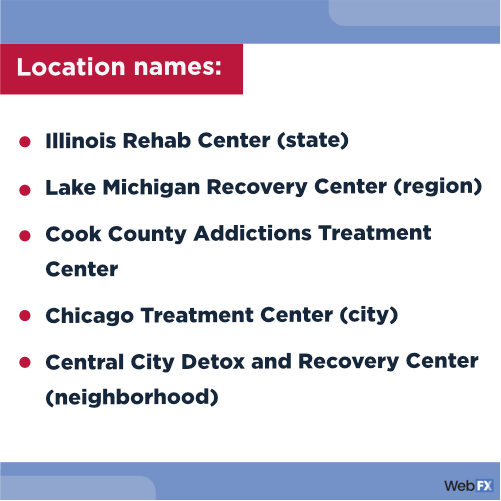Nevertheless, numerous https://this-is-what-depression-looks-like.mental-health-hub.com/ lines of evidence link a sleep stage called Rapid Eye Movement sleep. After you go to sleep, your brain goes into three progressively much deeper phases of non-REM sleep, which is primarily dreamless. After about 90 minutes, it gets in REM sleep, which is when most dreaming takes place. Normally, the brain will cycle through these phases numerous times in the course of a night's sleep, with the REM stages getting progressively longer.
Research study suggests that we process emotional memories throughout healthy Rapid Eye Movement sleep, assisting us "unlearn" frightening or uncomfortable experiences. Els van der Helm and Matthew Walker, sleep scientists at the University of California, Berkeley, have actually speculated that the normal pattern of emotional processing that occurs throughout REM sleep breaks down in people with anxiety.
Surprisingly, in some individuals, total sleep deprivation can quickly raise depression, though only temporarily. Van der Helm and Walker believe that this may work in similar method as the antidepressants by denying the brain of this inefficient type of Rapid Eye Movement sleep. Issues with Rapid Eye Movement likewise appear to play a function in trauma (PTSD).
A evaluation of research suggests that the drug prazosin, which physicians generally prescribe for high blood pressure, can relieve the nightmares of military battle veterans with PTSD.Noradrenaline reduces REM sleep. By decreasing the hormone's concentration in the brains of veterans with PTSD, prazosin may promote more efficient Rapid Eye Movement, which then removes the emotional label that is triggering their frequent nightmares.
Along with assessing the incidence and nature of sleep difficulties in people with these conditions, the scientists will randomly appoint participants with sleep issues to get either their usual care or treatment at a sleep clinic. Describing their forthcoming study in the journal BMC Psychiatry, the psychiatrists write:" In spite of a high incident of sleep disorders and established negative impacts on mental health, little attention is paid to sleep issues in psychological health care.

The Greatest Guide To How Drug Use Affects Mental Health
Sleep is as crucial to our health as eating, drinking and breathing. It enables our bodies to fix themselves and our brains to consolidate our memories and process information. Poor sleep is linked to physical issues such as a weakened body immune system and mental health issue such as anxiety and depression.
This consists of easy ways to enhance your 'sleep health', such as changing the light, noise and temperature level in the bedroom and altering your consuming, drinking and exercise routines, guidance which can also be found in Sleep Well, our handy pocket guide to better sleep. The report also includes guidance on how Cognitive Behavioural Therapy can be more effective in assisting individuals with long-lasting sleeping disorders than medication, and how NHS policy could be changed to show this fact.
Have you ever gone to bed worried about an essential, early morning meeting? You understand you need to be well rested in order to put your best foot forward, so you invest the entire night lying wide awake considering how you really require to fall asleep? It's something we've all skilled.
Dealing with the rare restless night is something, however for many individuals, restlessness isn't an isolated occurrence. In reality, it's estimated that 40 million Americans have a persistent sleep condition. And with sleep and mental health being so carefully related, there's an undeniable connection happening. 50% to 80% of individuals looking for psychological health care also complain of issues with sleep, and those who are experiencing anxiety, stress and anxiety, or ADHD are especially most likely to face sleep also.
However, more current research has actually recommended that this may not be the whole story. These research studies have actually discovered that sleep disturbances may actually be working as a trigger, raising your risk of developing a psychological health condition. While scientists aren't precisely sure why this is, they have found some connections.

More About How Music Negatively Affects Mental Health
Research studies have actually shown that Rapid Eye Movement sleep assists our brains enhance discovering skills, memory, and general psychological health. When this type of sleep is disrupted, our neurotransmitters and tension hormones are also interrupted. Therefore, this disturbance can exacerbate any already-present symptoms of psychological health conditions and vice versa. Various research studies have actually revealed that as much as 90% of adults and kids with anxiety likewise experience some form of sleep issue.
One longitudinal study found that individuals with insomnia were 4 times more likely to establish depression than their non-insomniac counterparts. A number of other studies have actually taken a look at the relationship in between sleep and anxiety in youths. Interestingly, they discovered that sleep issues started before their anxiety did. It's approximated that over half of adults suffering from generalized stress and anxiety condition likewise have sleep issues.
Being distressed can make it difficult to fall or remain asleep, which can then trigger anxiety about losing sleep. One survey discovered that over half of people affected with both sleep concerns and anxiety established anxiety particular to going to sleep during the night. Similar to depression and sleep, losing quality rest can magnify the symptoms of stress and anxiety.
There are fewer research studies on the effects of ADHD on sleep, but many grownups and children with ADHD will complain of comparable sleep disruptions. Numerous sufferers will frequently experience "perverse sleep" being awake when it's time for bed and being tired when it's time to be awake. Individuals with ADHD will regularly report concerns with dropping off to sleep, remaining asleep, and getting deep, peaceful sleep.
Acknowledging the power of sleep and its relationship with mental health is more essential than ever in today's busy, agitated culture. Comprehending how one affects the other not just helps in getting the most precise medical diagnoses, however likewise aids in enhanced treatments for both conditions. For more information about Neurocore's med-free sleep program, provide us a call at 800.600.4096.
Everything about How Gambling Affects Mental Health
Do you often work longer in the night? Do you spend a lot of time partying with pals into the early hours? Or do you have children who often keep you awake in the evening? With work, family and other life commitments, a lot of us simply don't get the recommended seven or eight hours of sleep.
It can be easy to dismiss sleep as not being essential in preserving a psychologically healthy lifestyle however are we missing a technique? How crucial is a great night's sleep to how we function mentally? of describes why sleep is so crucial to our, and what we can do to assist improve our sleeping practices - how mental health affects physical health.
The outcomes of one study (Yoo, Gujjar et al (2007 ). A deficit in the capability to form brand-new human memories without sleep. Nature Neuroscience, 10( 3 ), 385-392) indicate that a night of restful sleep may 'reset' brain reactivity in order to get ready for psychological challenges the next day. Sleep has an important restorative function in 'charging' the brain at the end of each day, simply like we require to charge a mobile phone battery after extended use.
Ongoing poor sleep can be a huge risk element for the advancement of major depressive condition. The threat of feeling and/or (in addition to intensifying existing stress and anxiety and anxiety) increases with the seriousness of, and so it is necessary to acknowledge and figure out sleep problems as quickly as they are recognized.